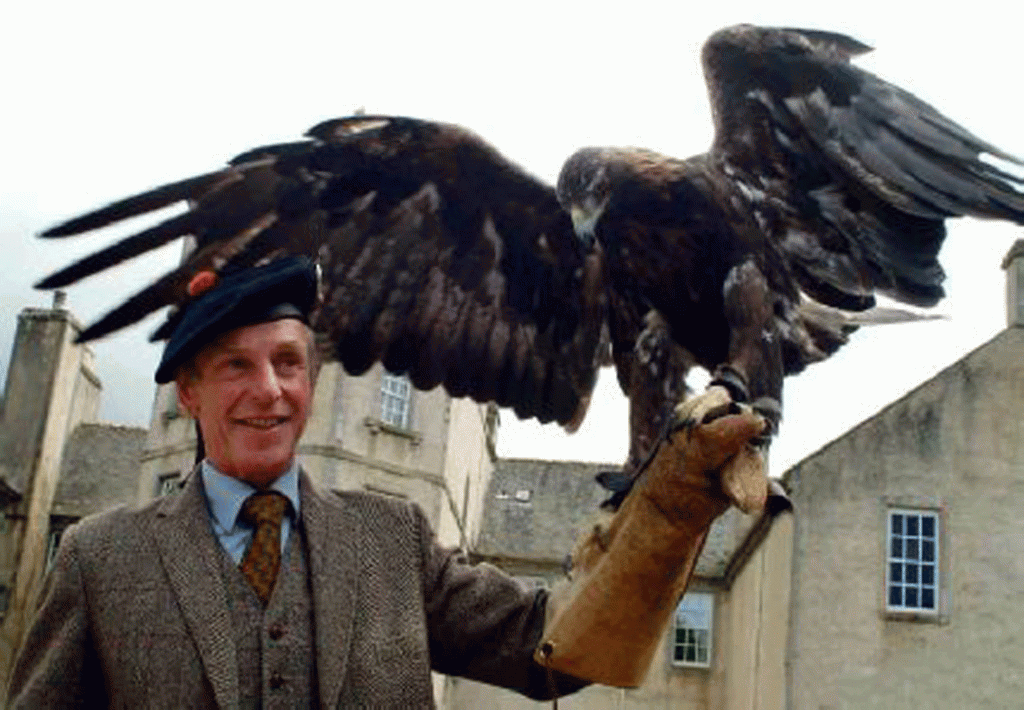DNA research has proved that one of the Founding Fathers of the United States was descended from a Highland clan chief.
Scholars have long disputed the origins of James Monroe, the fifth President of the US, who was in office from 1817 to 1825.

Now a project has found a direct link between Monroe and 16th Century Scottish clan chief, Robert Munro of Foulis.
Researchers tracked down a second cousin five times removed of the President and found they shared the same “uncommon Y chromosome DNA signature”.
Certain
The Munros of Foulis were based in the area around Evanton, Ross-shire. Robert Munro led a successful military career before dying at the age of 44.
It now seems certain that President Monroe, who himself fought in the American Revolutionary War, bought Florida from Spain and had the capital of Liberia named after him, hails from the north side of the Cromarty Firth – about three and a half hours drive north of Edinburgh.
Hector Munro of Foulis, the current clan chief, expressed his excitement at the findings.
He said: “The clan is proud of the achievements of many distinguished men and women who bear the name, however they might choose to spell it.
“But it is pleasing to know that one of the founding fathers of the United States was descended from our ancient Ross-shire family.”
Delight
One local, Derek Munro, from Alness, was delighted. “There have been lots of famous Munros from around here, it’s great to now have another one,” he said.
The research was carried out by Clan Munro USA, based in North Carolina, in a bid to discover more about their heritage.
After locating the distant relative of the President, who has asked not to be identified, researchers were able to test to see if he carried an uncommon chromosome associated with the Foulis clan chiefs.
DNA
Amazingly, it was confirmed that he carried the strand of DNA – putting an end to generations of debates over President Monroe’s ancestry.
The project also involved testing 200 people with the surname Munro, or similar variants, from around the world to find if they were related to the President.
Forty of them had the Foulis chromosome, meaning that they are descended from the Scottish Munro clan and relatives of the President Monroe.

Enrique Munro from Santiago, Chile, was one of those to have his links to Scotland – and a President – confirmed.
He said: “I was already proud of my Scottish ancestry, but I am excited that the Munro DNA project has found that I am definitely related to an American President.”
Retired quantity surveyor Donald Munro, who grew up in Scotland but now lives in Perth in Australia, also carries the chromosome.
Ancestry
“I was unable to directly trace my ancestry to the Foulis family because the paper trail runs out two centuries ago,” he said.
“But now the DNA studies prove my relationship. Calculations suggest that my common ancestor with President Monroe lived about 700 years ago and so would have been a member of one of the earliest generations of the clan.”
Farmers
President Monroe, who was born in 1758 in Virginia to a family of farmers, always believed his ancestors had been farmers in Ross-shire.
Margaret Bardin, of Clan Munro USA, said: “DNA studies show that despite having surnames in common, in reality every Scottish line includes multiple paternal lines.
“However we believe that many Munro men, in Scotland and around the world, will carry signature DNA showing they are related to President Monroe, and we hope to prove this by studying more than them.”
Fame
Other Munros of note include Sir Hugh Munro, born in 1856, who produced the first list of all mountains in Scotland over 3,000ft and subsequently had them named after him.
Andrew Munro, born in 1869, was a lecturer in mathematics at Queen’s College, Cambridge, and has the Munro scholarship named in his honour.
The Munro clan can be traced back to the eleventh century, when founder Donald Munro moved from the north of Ireland and settled in Scotland.
God
The clan chiefs have always been situated at Foulis Castle, near Alness. Their crest bears an eagle, and their motto is “Dread God”.
In 1823 President Monroe warned European nations that further interference in the affairs of North or South America would be regarded as acts of aggression against the US, a position that became known as the Monroe Doctrine.
